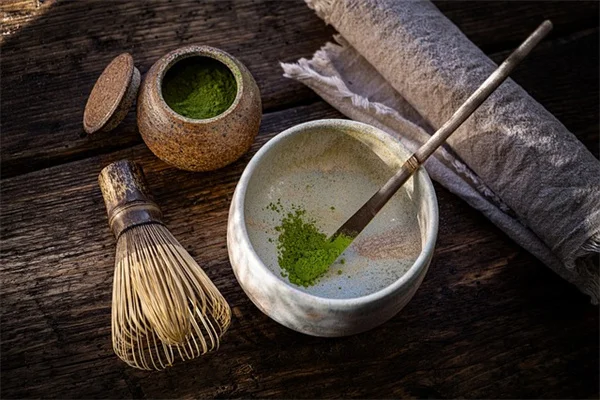Advertisement
Does high sodium intake worsen eczema? The answer is yes - a groundbreaking new study shows that higher salt consumption may significantly increase your risk of eczema flare-ups and severity. Researchers analyzed data from over 215,000 participants and found that just a 1-gram increase in daily sodium intake was associated with an 11% higher chance of developing atopic dermatitis (the medical term for eczema). Even more concerning? That same small increase was linked to a 16% greater likelihood of active symptoms and 11% higher odds of severe cases. While we've known for over a century that diet affects eczema, this is some of the clearest evidence yet connecting sodium directly to symptom severity. But here's the good news - simple dietary changes like using herbs instead of salt and choosing low-sodium packaged foods could make a real difference in managing your eczema symptoms.
E.g. :Quaker Oats Recall Alert: 5 Things You Must Know About Salmonella Risk
- 1、Is Your Salt Habit Making Your Eczema Worse?
- 2、Fast Food = Fast Flare-ups?
- 3、Practical Tips to Cut Back on Salt
- 4、The Bigger Picture on Sodium and Health
- 5、What's Next in Eczema Research?
- 6、Final Thoughts (But Not Really Final)
- 7、The Hidden Sodium in Everyday Foods
- 8、Creative Ways to Reduce Sodium Without Feeling Deprived
- 9、Understanding Your Sodium Tolerance
- 10、Beyond the Kitchen - Other Sodium Sources
- 11、The Psychological Side of Salt Reduction
- 12、FAQs
Is Your Salt Habit Making Your Eczema Worse?
Hey there! Have you ever noticed your skin getting extra itchy after eating a bag of salty chips? Well, science might finally explain why. A massive new study with over 215,000 participants found something fascinating - people who consumed more sodium were more likely to have atopic dermatitis (that's the medical term for eczema), and their symptoms tended to be worse too!
The Shocking Numbers Behind Salt and Eczema
Let me break down the findings for you in simple terms. The researchers measured sodium levels through urine tests (yes, the pee test!) and found:
| Sodium Increase | Effect on Eczema |
|---|---|
| 1-gram daily increase | 11% higher chance of having eczema |
| Same 1-gram increase | 16% higher chance of active flare-ups |
| Same 1-gram increase | 11% higher chance of severe symptoms |
Now here's something that might surprise you - this isn't actually a brand new idea. Doctors were recommending low-salt diets for eczema patients over 100 years ago! But back then, they were basically guessing. Today, we've got the science to back it up.
Why Does Salt Mess With Your Skin?
Ever wonder why salty foods might make your eczema act up? Here's the scoop: sodium gets stored in your skin to help prevent water loss (which is good), but it also wakes up your immune system cells (which is bad for eczema). It's like having an overeager security guard who starts tackling everyone at a party - including the harmless guests!
Dr. Katrina Abuabara, one of the study authors, explained it to me this way: "Sodium can activate immune cells and trigger inflammation while turning off some of our natural 'brakes' against overreaction." Basically, salt might be putting your immune system into overdrive when it doesn't need to be.
Fast Food = Fast Flare-ups?
Here's a question that might make you think twice before hitting the drive-thru: Did you know kids who eat fast food more than three times a week tend to have worse eczema? While we can't blame it all on the salt (those burgers pack sugar and unhealthy fats too), sodium is definitely a major suspect.
 Photos provided by pixabay
Photos provided by pixabay
Your Skin's Sodium Storage System
A small but eye-opening 2019 study found something wild - the affected skin patches of eczema patients had higher sodium levels than their healthy skin. Imagine your skin cells hoarding salt like it's preparing for winter! This buildup appears to influence how your immune system behaves, potentially making your symptoms worse.
But before you panic and throw out your salt shaker, let's keep things in perspective. The researchers aren't saying salt definitely causes eczema - just that there's a connection worth exploring further. As Dr. Abuabara put it, "This is just the first step in understanding the relationship."
Practical Tips to Cut Back on Salt
Okay, so maybe we should watch our sodium intake - but how? Nutrition expert Lucy McCann gave me these super practical tips that anyone can follow:
Flavor Hacks That Beat Salt
Instead of reaching for the salt shaker, try these alternatives:
- Fresh herbs like basil or cilantro
- Spices such as garlic powder or smoked paprika
- Citrus zest (lemon or lime work great)
- Vinegars for that tangy kick
Here's a pro tip that changed my cooking game: Add these flavor boosters at different stages of cooking. Some spices bloom in oil, while others are best added at the end. Experiment and find what works for you!
Grocery Store Smarts
Did you know that about 70% of our sodium intake comes from processed and restaurant foods? That's right - the salt shaker at home isn't the main villain! Here's how to shop smarter:
When choosing canned goods, always opt for "no salt added" versions or those packed in water instead of brine. And here's a fun fact - many "low sodium" versions of foods taste just as good once your taste buds adjust (which takes about 2-4 weeks).
The Bigger Picture on Sodium and Health
While we're focusing on eczema here, let's not forget that reducing sodium has other benefits too. The average American eats about 3,400 mg of sodium daily - that's way above the recommended 2,300 mg limit!
 Photos provided by pixabay
Photos provided by pixabay
Your Skin's Sodium Storage System
Here's something to chew on: reducing sodium intake can lower blood pressure and decrease heart disease risk, especially as we get older. So even if the eczema connection isn't 100% proven yet, cutting back on salt is still a smart move for overall health.
But here's the million dollar question: How can we make low-sodium eating actually enjoyable? The key is gradual change. Start by mixing regular and low-sodium versions of foods, then slowly increase the ratio. Your taste buds will adapt without feeling deprived!
What's Next in Eczema Research?
The researchers aren't stopping here. Dr. Abuabara shared some exciting news: "We're about to begin a National Institutes of Health-funded study to better understand the relationship between dietary sodium, skin sodium, and eczema severity over time."
Your Action Plan While We Wait for More Answers
While we wait for more definitive research, here's what you can do today:
- Start paying attention to food labels (sodium hides everywhere!)
- Try one new salt-free seasoning each week
- Keep a food and symptom journal to spot patterns
- Cook at home more often where you control the salt
Remember, everyone's body reacts differently. What triggers one person's eczema might not affect another. The key is staying curious, being patient with yourself, and making changes that feel sustainable for your lifestyle.
Final Thoughts (But Not Really Final)
This research opens up fascinating new possibilities for understanding eczema. While we can't say for certain that cutting salt will cure your eczema, the evidence suggests it might help some people manage their symptoms better.
And here's one last thought to leave you with: Managing eczema is about the big picture - stress, sleep, skincare, and yes, potentially diet too. Small, consistent changes often add up to bigger results than drastic overhauls that are hard to maintain.
So why not try reducing your sodium intake for a few weeks and see if you notice any difference? After all, as my grandma used to say, "It couldn't hurt, and it might help!" And who knows - your skin (and maybe your heart) might thank you for it.
The Hidden Sodium in Everyday Foods
You might think you're being careful with the salt shaker, but sodium sneaks into our diets in ways that would surprise you. Let me tell you about my own "aha moment" - when I realized my "healthy" breakfast cereal had more sodium than a small bag of potato chips!
Breakfast Traps You Didn't See Coming
That morning bowl of cereal? Some brands pack up to 300mg of sodium per serving. And if you're like me and pour a generous portion, you could be starting your day with nearly 500mg before you even leave the house!
Here's a comparison that opened my eyes:
| Food Item | Sodium Content | % Daily Value |
|---|---|---|
| 1 cup cornflakes | 350mg | 15% |
| 1 slice whole wheat bread | 170mg | 7% |
| 1 tbsp soy sauce | 900mg | 39% |
 Photos provided by pixabay
Photos provided by pixabay
Your Skin's Sodium Storage System
Ever grab a deli sandwich thinking it's a safe choice? Think again! That single turkey and cheese sandwich could be delivering nearly half your daily sodium allowance. The culprits? The processed meats, cheese, and even the bread itself.
I learned this the hard way when my favorite "quick lunch" spot revealed their nutrition info. My go-to sandwich had 1,200mg of sodium - and that's before adding pickles or chips! Now I ask for half the meat and no cheese, saving about 400mg right there.
Creative Ways to Reduce Sodium Without Feeling Deprived
Cutting back on salt doesn't mean eating bland food. Some of the most flavorful cuisines in the world actually use very little salt. Let me share some tricks I've picked up from chefs and nutritionists.
Umami - Your New Best Friend
What if I told you there's a way to make food taste richer and more satisfying without adding salt? Meet umami - the so-called "fifth taste" that makes foods like mushrooms and tomatoes so delicious.
Try this simple trick: add a tablespoon of tomato paste or a few dried mushrooms to soups and stews. The natural glutamates boost flavor in a way that makes you less likely to reach for the salt. My personal favorite? A sprinkle of nutritional yeast - it's like nature's flavor booster!
The Power of Acid
Here's a chef's secret: when food tastes flat, we don't always need salt - we need acid. A splash of lemon juice or vinegar can brighten flavors in ways salt never could.
I keep a bottle of good quality balsamic vinegar on my kitchen counter. A quick drizzle transforms boring steamed veggies into something special. And get this - research shows acidic flavors actually make us perceive saltiness more intensely, meaning we can use less salt for the same impact!
Understanding Your Sodium Tolerance
Not everyone reacts to sodium the same way. Some people are "salt sensitive," meaning their bodies respond more dramatically to sodium intake. Could you be one of them?
The Simple Test You Can Do at Home
Want to know how your body handles salt? Try this experiment: cut your sodium intake in half for three days, then eat a high-sodium meal on the fourth day. Pay attention to how you feel - especially your skin.
When I tried this, I noticed my rings felt tighter after the salty meal, and sure enough, a small eczema patch on my hand flared up. That was enough proof for me that my body doesn't love excess sodium!
Genetic Factors at Play
Did you know your genes might influence how you process sodium? Some people have variations in genes that affect kidney function and sodium excretion. While you can't change your DNA, knowing this helps explain why some people seem to eat salt with no issues while others react strongly.
My friend Sarah can eat pretzels by the bag with no problem, while I get puffy just looking at them. Now we know why - we're just wired differently!
Beyond the Kitchen - Other Sodium Sources
We've talked about food, but sodium hides in other unexpected places too. Once you start looking, you'll see it everywhere in daily life.
Medications and Supplements
Would you believe some antacids contain more sodium than a serving of french fries? It's true! Effervescent tablets and soluble medications are particularly high in sodium. Always check labels or ask your pharmacist about low-sodium alternatives.
I switched from fizzy vitamin C tablets to capsules and saved about 300mg of sodium per dose. Small change, big difference over time!
Your Water Supply
Here's something most people never consider - your tap water might contain sodium. Some water softening systems add sodium to the water, and in coastal areas, saltwater intrusion can increase sodium levels.
Want to test yours? Many water quality reports list sodium content, or you can get a simple test kit. My town's water has about 20mg per liter - not huge, but it adds up if you're watching sodium closely.
The Psychological Side of Salt Reduction
Changing eating habits isn't just about knowledge - it's about mindset. Let's talk about how to make these changes stick without feeling like you're missing out.
Breaking the Salt Craving Cycle
Ever notice how salty foods make you want more salty foods? There's science behind that! Salt triggers dopamine release, creating a temporary "feel good" response. The good news? You can retrain your taste buds in about 3-4 weeks.
Here's what worked for me: I started by mixing regular and low-sodium versions of foods, gradually increasing the ratio. Within a month, regular chips tasted way too salty to enjoy!
The 80/20 Rule for Real Life
Let's be real - nobody's perfect. Trying to eliminate all sodium would be miserable and unnecessary. Instead, I follow the 80/20 rule: make healthy choices 80% of the time, and don't stress about the other 20%.
This means when I'm at my favorite pizza place for a special occasion, I enjoy every bite without guilt. The key is making this the exception rather than the rule. Life's too short to never eat french fries again!
E.g. :Sodium Intake and Atopic Dermatitis | Allergy and Clinical ...
FAQs
Q: How exactly does sodium affect eczema?
A: Here's what's happening in your body when you consume too much sodium: The salt gets stored in your skin to prevent water loss (which sounds helpful), but it also activates immune cells that trigger inflammation. Think of it like your immune system getting overly excited - sodium removes some of its natural "brakes," causing it to overreact. A 2019 study found that eczema-affected skin actually contains higher sodium levels than healthy skin. This sodium buildup appears to influence your immune response, potentially making symptoms worse. While more research is needed, the current evidence suggests that reducing sodium intake could help calm this inflammatory response.
Q: How much sodium is too much for eczema sufferers?
A: The Dietary Guidelines for Americans recommend no more than 2,300 mg of sodium daily (about 1 teaspoon of salt), but most Americans consume about 3,400 mg - way over the limit! The study found that even small increases matter - just an extra gram (1,000 mg) of sodium daily showed measurable effects on eczema risk and severity. While there's no specific "eczema sodium limit" yet established, aiming for the general 2,300 mg recommendation is a smart starting point. Remember, about 70% of our sodium comes from processed and restaurant foods, not the salt shaker, so reading labels is key.
Q: Are some people more sensitive to sodium's effects on eczema?
A: Absolutely! Just like with many health conditions, individual responses vary. Some people might notice immediate flare-ups after salty meals, while others see no change. Factors like genetics, overall diet quality, and eczema severity likely play a role. The researchers emphasize that while the study shows a clear population-level association, not every eczema patient will be equally sodium-sensitive. That's why keeping a food/symptom journal can be so helpful - it lets you spot your personal triggers rather than relying solely on general guidelines.
Q: What are the easiest ways to reduce sodium intake for eczema management?
A: Here are five simple swaps that make a big difference: 1) Choose fresh or frozen vegetables instead of canned (or rinse canned veggies well), 2) Use herbs, spices, and citrus instead of salt when cooking, 3) Opt for low-sodium versions of broths, sauces, and condiments, 4) Cook at home more often where you control the salt, and 5) When eating out, ask for dressings/sauces on the side. Pro tip: Your taste buds adjust to less salt in about 2-4 weeks - after that, overly salty foods will actually taste too salty!
Q: Should I eliminate salt completely to help my eczema?
A: Not at all! Sodium is an essential nutrient, and extreme restriction isn't necessary or recommended. The key is moderation and being mindful of hidden sodium sources. Even the study authors aren't suggesting radical dietary changes yet - they emphasize this is early evidence that needs more research. A balanced approach works best: focus on reducing processed foods (the main sodium culprits) while enjoying home-cooked meals seasoned with herbs and spices. Small, sustainable changes tend to work better than drastic overhauls for long-term eczema management.






